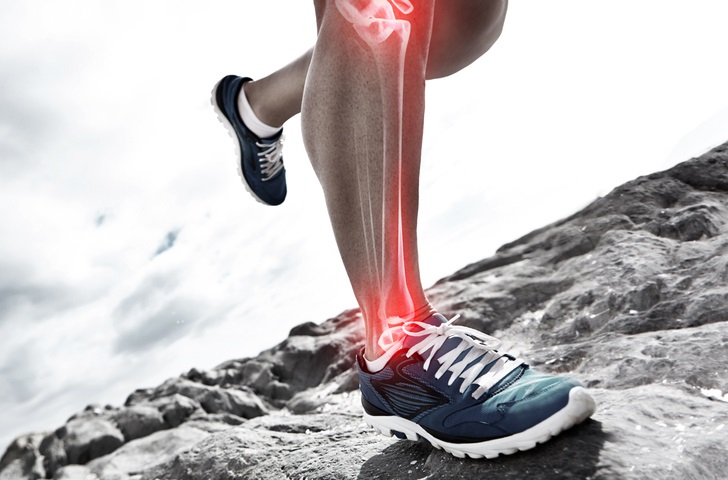Shin Splints – Causes, Symptoms, and Treatments

Medial tibial stress syndrome, also known as shin splints, is experienced by approximately 3 million Americans every year. If you suffer from shin splints, it is important to be well-informed so that you can make educated decisions about your health and treatment.
Read below to learn about the common causes, symptoms, and treatment options for shin splints…
Causes
Shin splints develop when the muscle and bone tissue in the shins becomes irritated by overuse. This often happens as the result of sudden increases in the intensity, duration, or frequency of physical activity.
Other factors that can contribute to shin splints include:
- Having flat feet
- Wearing poor-fitting footwear
- Weakness in the hips, core, or spine
- Running on a sloped surface
Symptoms
Unsurprisingly, the main symptom of shin splints is a dull, aching pain in the front part of the lower leg. Other symptoms may include:
- Inflammation along the shin bone
- Area is tender to the touch
- Pain develops during or shortly after exercise
- Pain worsens in the morning
- Numbness and weakness in feet
Treatment
Shin splints can usually heal on their own with proper care, but may take several weeks to fully recover. Here is what you can do in the meantime:
- Stay off your feet as much as possible
- Keep your legs elevated
- Use ice to reduce pain and inflammation
- Wear a compression bandage
- Take over-the-counter pain medication
- Use orthotics for your shoes
- Stretch regularly to improve flexibility
If the pain hasn’t subsided after two weeks of self-treatment, consult a doctor.
If you live in Fairfield County and suffer from severe shin splints, help is available at Orthopaedic Specialty Group. As southern Connecticut’s largest and most experienced orthopedic practice, you can trust our team of sports medicine specialists to get you on the road to recovery as quickly as possible. Request an appointment online, or call (203) 337-2600.
